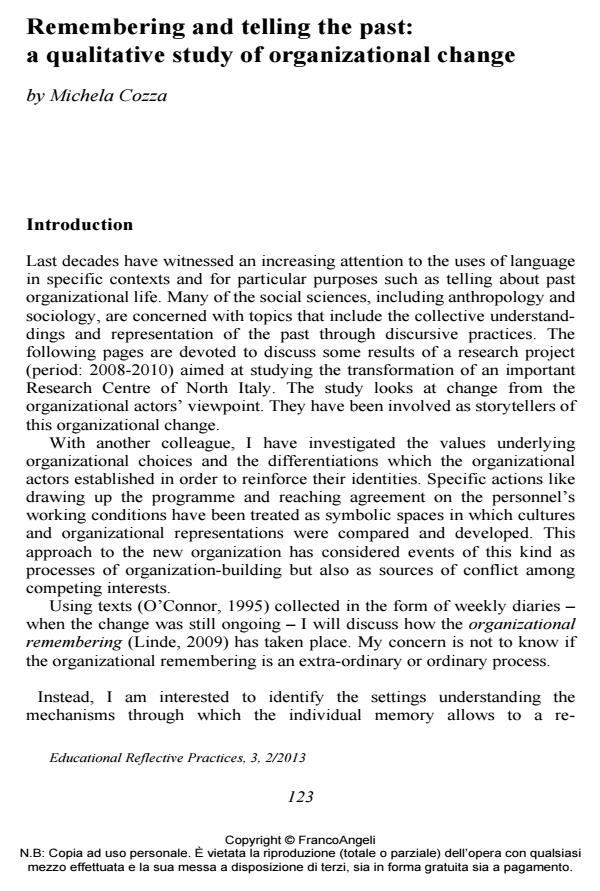Remembering and telling the past: a qualitative study of organizational change
Titolo Rivista EDUCATIONAL REFLECTIVE PRACTICES
Autori/Curatori Michela Cozza
Anno di pubblicazione 2014 Fascicolo 2013/2
Lingua Inglese Numero pagine 18 P. 123-140 Dimensione file 574 KB
DOI 10.3280/ERP2013-002008
Il DOI è il codice a barre della proprietà intellettuale: per saperne di più
clicca qui
Qui sotto puoi vedere in anteprima la prima pagina di questo articolo.
Se questo articolo ti interessa, lo puoi acquistare (e scaricare in formato pdf) seguendo le facili indicazioni per acquistare il download credit. Acquista Download Credits per scaricare questo Articolo in formato PDF

FrancoAngeli è membro della Publishers International Linking Association, Inc (PILA), associazione indipendente e non profit per facilitare (attraverso i servizi tecnologici implementati da CrossRef.org) l’accesso degli studiosi ai contenuti digitali nelle pubblicazioni professionali e scientifiche.
In this paper I will discuss some results of a research project aimed at studying the transformation of an important Research Centre of North Italy. Organizational actors have been involved as storytellers of this organizational change. They have reconstructed the trajectories of change, telling about the influence of change on their organizational relations and working experience. Using texts collected in the form of weekly diaries, I will discuss how the organizational remembering has taken place as practical accomplishment, and how it has enabled a reflexive process.
Michela Cozza, Remembering and telling the past: a qualitative study of organizational change in "EDUCATIONAL REFLECTIVE PRACTICES" 2/2013, pp 123-140, DOI: 10.3280/ERP2013-002008